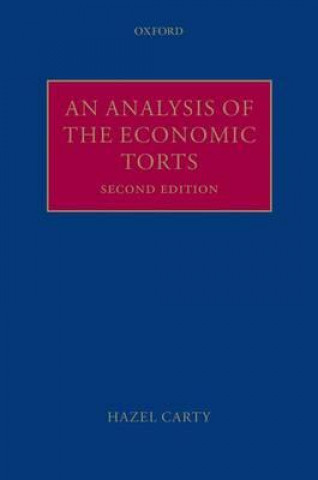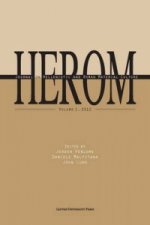
Kézbesítés
Vásárlási tanácsadó
15 967 773 könyv 175 nyelven








Összes nyelv megjelenítése (175)





Nem vált be? Semmi gond! Nálunk 30 napon belül visszaküldheti
 Ajándékutalvány
bármilyen értékben
Ajándékutalvány
bármilyen értékben
Ajándékutalvánnyal nem nyúlhat mellé. A megajándékozott az ajándékutalványért bármit választhat kínálatunkból.
Analysis of the Economic Torts
 Angol
Angol
 511 b
511 b
30 nap a termék visszaküldésére
Ezt is ajánljuk


The economic torts for too long have been under-theorized and under-explored by academics and the judiciary alike. In recent years claimants have exploited the resulting chaos by attempting to use the economic torts in ever more exotic ways. This second edition, as before, attempts to provide practical legal research to both explore the ingredients of all these torts - both the general economic torts (inducing breach of contract, the unlawful means tort, intimidation, the conspiracy torts) and the misrepresentation economic torts (deceit, malicious falsehood and passing off) - and their rationales. And, as before, an optimum framework for these torts is suggested. However that framework has to take on board the apparent tension within the House of Lords as revealed in the recent decisions in OBG v Allan and Total Network v Revenue. Over 100 years ago the House of Lords in the seminal decision of Allen v Flood in theory set the agenda for the modern development of the economic torts. The majority in that case adopted an abstentionist approach to liability for intentionally inflicted economic harm, so that even where intentional and unjustified economic harm was inflicted, liability would not necessarily follow. However, this clear framework for the torts was obscured by subsequent case law, leaving the economic torts in a hopeless muddle by the start of the twenty-first century. A chance to finally sort out this mess was presented to the House of Lords in 2007 in the shape of three conjoined appeals, reported under the name OBG v Allan. The thrust of the judgments was that a framework for the economic torts was to be established and dicta and decisions that caused problems and incoherence were to be named and shamed. Re-affirming the abstentionist philosophy of Allen v Flood Lord Hoffmann and Nicholls and Baroness Hale in part relied upon the first edition of An Analysis of the Economic Torts, Lord Hoffmann noting "...if what I have said does anything to clarify what has been described as an extremely obscure branch of the law, much is owing to Hazel Carty's book An Analysis of the Economic Torts ". However, within 10 months of the OBG decision, a differently constituted HL in Total Network SL v Revenue & Customs Commissioners undermined this nascent coherence and did so by focusing on the conspiracy torts (previously dismissed by some commentators as anomalous or superfluous). Distinguishing OBG (which did not as such analyse the conspiracy torts) the House of Lords in Total Network may have shifted the general economic torts from the abstentionist to the interventionist track of development. Thus it is suggested that conflicting agendas for general economic liability can be discerned in the OBG and Total Network judgments. These agendas are debated (against the background of the growing academic debate) and a coherent approach suggested. As for the misrepresentation torts their potential for development is also discussed and the peril of allowing them to transform into unfair trading or misappropriation torts is explained. As a result, the second edition involves a substantial re-write of the first edition. However, the thesis of the author remains that a coherent framework for these torts can best be constructed based on a narrow remit for the common law.
Információ a könyvről
 Angol
Angol
Kategória




 Hogyan vásároljunk
Hogyan vásároljunk






















